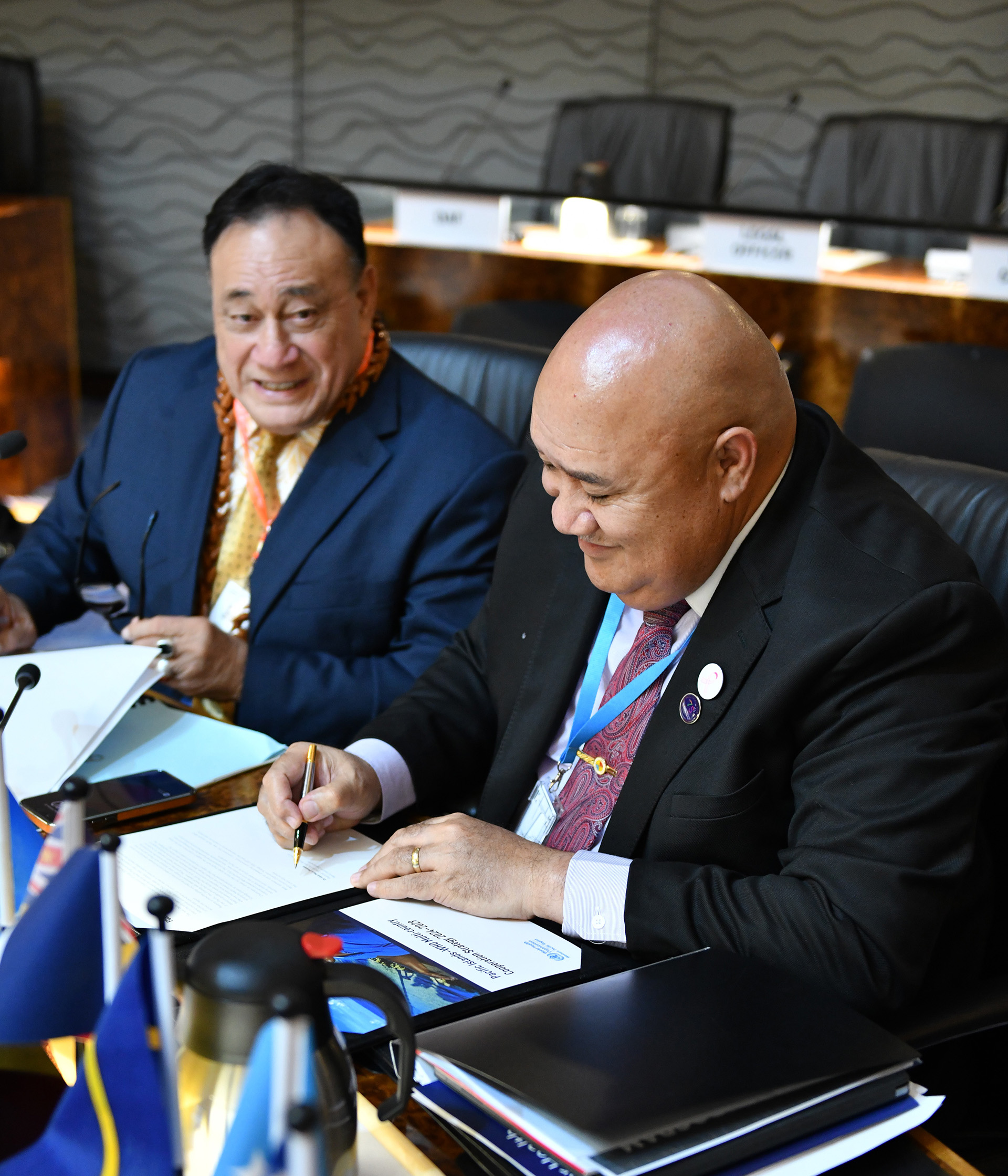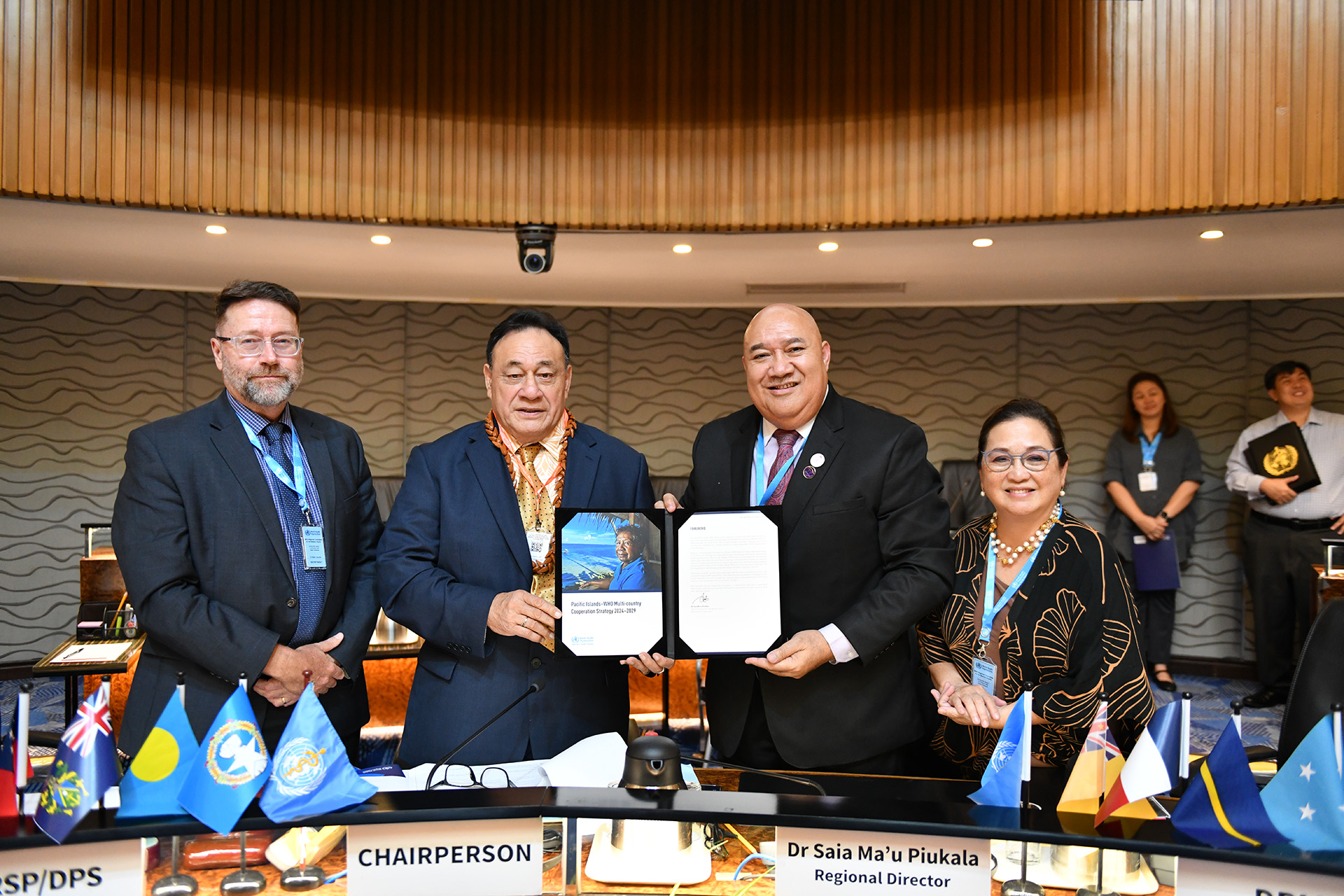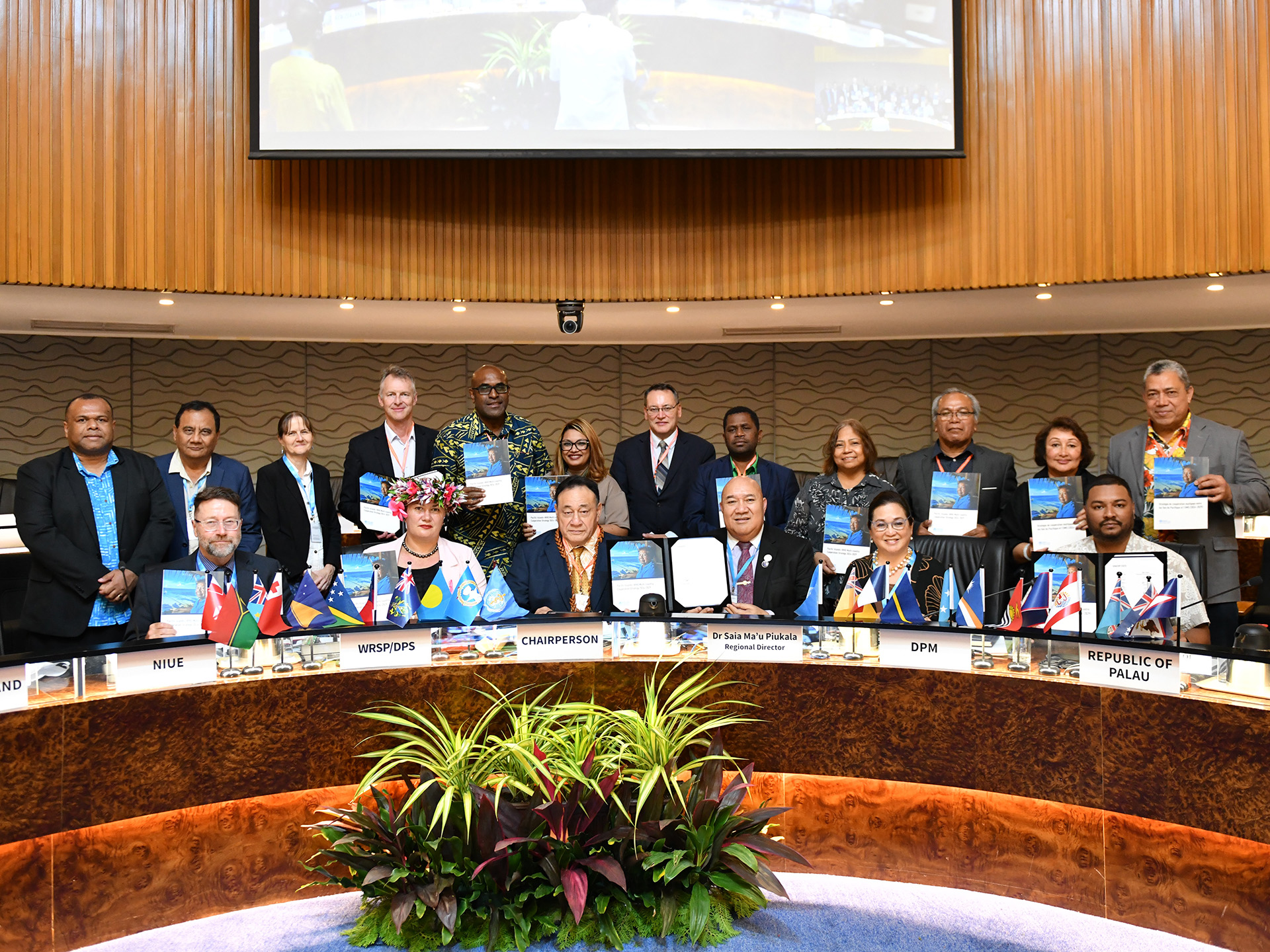Pacific Health Ministers launched their shared vision to address interwoven health challenges and work towards a healthier and more equitable Pacific region. The new Pacific Islands Multi-country Cooperation Strategy 2024-2029, or the MCCS, sets out the World Health Organization’s (WHO) strategic path and medium-term support to 21 Pacific island countries and areas: American Samoa, Cook Islands, Fiji, French Polynesia, Guam, Kiribati, the Marshall Islands, the Federated States of Micronesia, Nauru, New Caledonia, Niue, the Commonwealth of the Northern Mariana Islands, Palau, the Pitcairn Islands, Samoa, Solomon Islands, Tokelau, Tonga, Tuvalu, Vanuatu, and Wallis and Futuna.
We are all interconnected in the Pacific—with common challenges and solutions to achieve the strategic goals. Let’s face these together because we are stronger as one.
WHO Regional Director for the Western Pacific
This renewal of commitments by the PICs is a significant step to galvanise action for addressing three shared priorities: achieving access to healthcare for all, addressing noncommunicable diseases, and building resilience to health threats—including climate change, health emergencies and disease outbreaks.
The WHO Representative to the South Pacific and Director of Pacific Technical Support, Dr Mark Jacobs highlights the timeliness of the MCCS. “The MCCS comes at a critical time—we have six years in the lead up to 2030 to forge a pathway for a more sustainable Pacific region. Geographically, it’s unsurprising that the Pacific frequently experiences the impacts of the changing climate. The need for resilient health systems and the capacity to respond to health threats is more important than ever.”
The Pacific region is home to 21 Pacific island countries and areas spanning thousands of islands across the vast Pacific Ocean – home to over 3.4 million people. While there are shared health priorities across the Pacific, there are nuanced health burdens, capacities and socioeconomic contexts in each PIC. The MCCS also captures 21 country-focused plans (CFPs) that are tailored to address each nation’s needs.
“The Pacific faces complex health issues including noncommunicable diseases, communicable diseases and lack of human resources for health. These challenges must be addressed holistically—not only by the health sector—but also by engaging across sectors and in partnership with communities to move the dial towards meeting the Sustainable Development Goals,” said Dr Kim Eva Dickson, WHO Representative to Samoa, American Samoa, Cook Islands, Niue and Tokelau.
“The climate crisis poses existential threats to Pacific island countries and areas jeopardizing livelihoods and health of individuals, families, communities while wreaking havoc on health systems and economies,” said Dr Howard Sobel, WHO Representative to the Solomon Islands. “We must develop resilient health systems that can withstand increasingly severe weather related and other complex humanitarian events that Pacific Islanders deal with regularly.”
As the 21 Pacific island countries and areas take steps towards these priorities, the next six years will be critical in shaping more sustainable and resilient health systems that leave no one behind. This pursuit will be supported by WHO, other United Nations agencies, operational partners, donor organizations, academic institutions, regional research institutions, and other countries in the Pacific Rim and beyond.
 WHO Regional Director for the Western Pacific, Dr Saia Ma'u Piukala signing the Pacific Islands WHO Multi-country Cooperation Strategy 2024-2029 with the Minister of Health Samoa, Honourable Dr Valasi Luapitofanua Toogamaga Tafito Selesele. Credit: WHO / John Kelly Halina
WHO Regional Director for the Western Pacific, Dr Saia Ma'u Piukala signing the Pacific Islands WHO Multi-country Cooperation Strategy 2024-2029 with the Minister of Health Samoa, Honourable Dr Valasi Luapitofanua Toogamaga Tafito Selesele. Credit: WHO / John Kelly Halina

Dr Mark Jacobs, WHO Representative to the South Pacific and the Director of Pacific Technical Support; Minister of Health Samoa, Honourable Dr Valasi Luapitofanua Toogamaga Tafito Selesele; Dr Saia Ma'u Piukala, WHO Regional Director for the Western Pacific; and Dr Susan Mercado, WHO Director of Programme Management at the launch of the Pacific Islands WHO Multi-country Cooperation Strategy 2024-2029. Credit: WHO / John Kelly Halina

Pacific Ministers of Health and WHO at the launch of the Pacific Islands WHO Multi-country Cooperation Strategy 2024-2029.
Credit: WHO / John Kelly Halina
